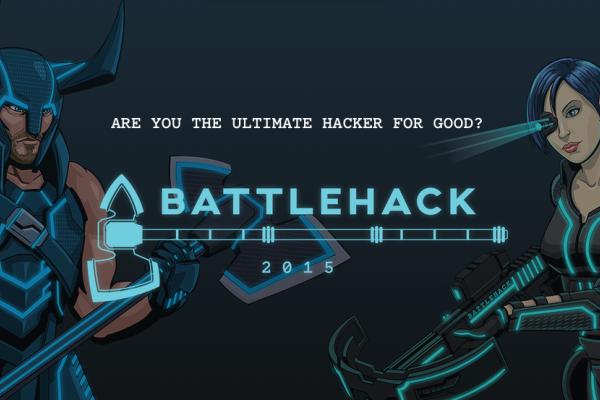Published on the 04/02/2015 | Written by Beverley Head

Federal and State Governments, Paypal, Braintree, MasterCard and Deloitte are just some of the organisations lining up to run Australian hackathons in 2015…
Software developers – both employed and freelance – are being encouraged to sign up for a slew of hackathons aimed at unleashing innovation. Last weekend Team Nightrider won the Australian round of PayPal’s BattleHack 2015, proposing wearable technology in the form of a cycling jacket, that would display brake lights on the back and indicator lights on the arms, to signal the rider’s intent.
The winning team members will be flown to San Francisco later this year to compete in the international event, where there are US$100,000 of prizes up for grabs.
BattleHack organiser and judge, John Lunn, senior director of developer relations at PayPal and Braintree was in Australia for the event, and acknowledged that although the prize money had no strings attached (“If they want they can spend it on beer”) hackathon participants were required to use Braintree or PayPal technology to underpin their proposal.
(Team Nightrider’s proposed cycling jacket would be bought using PayPal, with additional functions unlocked by paying using a PayPal app).
Lunn explained that PayPal had decided not to take the intellectual property that emerged from hackathons, nor did it try to hire people who participated – but he acknowledged that it did expose developers to PayPal and Braintree’s latest platforms and also provided the companies with useful feedback about those systems.
Deloitte, which has run its own and organized external hackathons has one planned for later this year on data and social innovation.
Deloitte Digital partner Steve Hallam said that for most organisations hackathons represented the best chance to achieve a step change, rather than an incremental effect. “In a well-run hackathon…you can unlock social good,” said Hallam, both by extending the boundaries of the organisation, and demonstrating to internal IT staff that their contributions were properly valued.
But he warned that to be effective organisations needed to properly resource hackathons with capital and time, and also have a clear strategy to support idea generation, acceleration of the idea, and ultimately launch of a product or service. Without that there was the risk that prospective participants would become disenfranchised.
In terms of resourcing hackathons John Lunn said that they represented a way of giving something back to the developer community. Melbourne’s weekend BattleHack was particularly lavish with participants competing at the Plaza Ballroom for 24 hours during which they were feted with a range of dude-food, Zonuts from famed Australian patissier Adriana Zumbo and free massages.



























